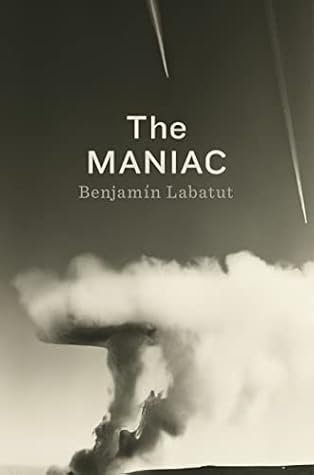More on this book
Community
Kindle Notes & Highlights
like almost all modern developments, mathematics was hostile to life: “It is inhuman, like every truly diabolic machine, and it kills everyone whose spinal marrow isn’t conditioned to fit the movement of its wheels.”
What if nature cannot be cognized as a whole?
For modern art recognized no laws, no method, no truth, just a blind, uncontainable surge, a rush of madness that would not stop
for anyone or anything but drive us onward even to the ends of the Earth.
preparing to thrust itself into our lives through technology by enrapturing the cleverest men and women with whispered promises of superhuman power and godlike control.
when he was a child, his grandmother, the old woman who had given him the love and attention that his father had denied him, would hand him a chest full of broken clocks when he came to visit her, discards from a shop that had gone out of business,
and Paul, that thin, nervous, polite, and inquisitive little boy, would spend the whole afternoon playing with cogs, springs, and coils, trying to put them back together again, a game he endlessly enjoyed, even though he never succeeded in repairing a single one.
This might seem shocking, I know, but it taught me a simple human truth that I learned very early on, which is that you can dance even with the devil knocking at your door.
As with all true revelations, he believed that they would lead the human race toward a greater, transcendent certainty. But the exact opposite was taking place.
This otherworldly capacity to see into the heart of things, or—if viewed from its opposing angle—this characteristic shortsightedness, which allowed him to think in nothing but fundamentals, was not merely the key to his particular genius but also the explanation for his almost childlike moral blindness.
it was not chemistry, industry, or politics that would shape the future of our world. It was mathematics.
“You don’t have to be responsible for the world that you’re in, you know?”
since these were no ordinary people, not ordinary at all, but easy prey for any hunter, because they were so caught up in themselves and completely indifferent to the world outside.
His answer to the nuclear dilemma was a perfect reflection of the best and the worst in him: mercilessly logical, completely counterintuitive, and so utterly rational that it bordered on the psychopathic.
mathematics may be, to a large extent, nothing but a strange and wonderful collection of games, an enterprise whose real purpose, beyond any one stated outright, is to slowly work changes in the individual and collective human psyche, as a way to prepare us for a future that nobody can imagine.
The problem with those games, the many terrible games that spring forth from humanity’s unbridled imagination, is that when they are played in the real world—whose rules and true purpose are known only to God—we come face-to-face with dangers that we may not have the knowledge or the wisdom to overcome.
And that just goes to show how it is almost impossible to foretell the consequences and applications of ideas and discoveries, and why it is so hard to properly judge even the realities that we have taken part in ourselves.
Life is so much more than a game. Its full wealth and complexity cannot be captured by equations, no matter how beautiful or perfectly balanced. And human beings are not the perfect poker players that we envisioned. They can be highly irrational, driven and swayed by their emotions, subject to all kinds of contradictions. And while this sparks off the ungovernable chaos that we see all around us, it is also a mercy, a strange angel that protects us from the mad dreams of reason.
“This species of device is so radically new that many of its uses will become clear only after it’s been put into operation.”
He knew the real challenge was not building the thing but asking it the right questions in a language intelligible to the machine.
Just think about this for a second: the most creative and the most destructive of human inventions arose at exactly the same time.
You insist that there is something a machine cannot do. If you tell me precisely what it is a machine cannot do, then I can always make a machine which will do just that. John von Neumann
Are we responsible for the things we create? Are we tied to them by the same chain that seems to bind all human actions?
toward true intelligence, they would have to be fallible: they would need to be capable not only of error and of deviation from their original programming but also of random and even nonsensical behavior.
Because how do you chastise a machine? How do you teach it to behave?
for I was gifted with that rarest sight, the type of thing that happens to a fortunate few, and that forever colors your vision of the world: I saw the birth of something new.
“Cavemen created the gods,” he said. “I see no reason why we shouldn’t do the same.”
“We have no guiding star,” he told me, “nothing to look up or aspire to, so we are devolving, falling back into animality, losing the very thing that has let us advance so far beyond what was originally intended for us.”
It is not the particularly perverse destructiveness of one specific invention that creates danger. The danger is intrinsic. For progress there is no cure.”
Why were we burdened by consciousness, when we could have remained blissfully ignorant like all other life-forms on this planet, living and dying with such an Edenic lack of awareness that pain and pleasure were only ever felt in the present, and did not, like our pains and glories, stretch out from one day to the next, linking us all together in an endless chain of suffering?


